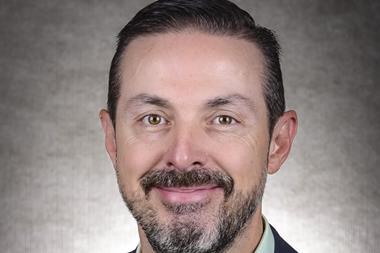Take a tough line to prevent fraud says Geoff Covey.
The recent case of a chief executive forced to resign amid claims he had "confused" company funds with his own, highlighted once more the pervasive nature of dishonesty. From staff raids on the stationery cupboard to fat cats abusing perks, it seems everyone is at it. In one extraordinary case, an employee of Land Rover smuggled a complete Range Rover out of the works piece by piece over a seven year period. During this time, he had succeeded in getting an exhaust pipe, a V8 engine and leather seats past security.
In another case, the head of a factory wanted a group picture taken of all his employees leaving the site at the end of the day. Cameras were stationed at the gates, which had been locked so as to capture the perfect shot when they were opened. No one had told the workers, though, and the rumour mill went into overdrive with whispers of a raid to uncover their embezzlement. After the picture had been taken, the forecourt of the plant was strewn with over 4,000 discarded items, including tools and parts.
The culture of a company and its managers has a major bearing on the honesty of its staff. The managing director of a Swiss subsidiary of a medium sized multinational was, to use the vernacular, on the fiddle. Dishonesty was easy to prove, but the investigation revealed a complex fraud beyond the capabilities of the MD. It emerged that an accountant within the firm had also been diverting funds into the obligatory trappings of ill-gotten wealth - a Spanish villa, fast cars, and a luxury lifestyle. Enquiries also uncovered a third fraudster, a salesman who had forged a bank transfer to make a deposit in his own name.
This case illustrates that fraud is contagious. Both the accountant and the salesman alluded to their crooked MD when trying to justify their own actions. Their rationale was based on the adage "what's sauce for the goose is sauce for the gander". Upon discovery, this certainly proved a truism - their collective goose was cooked.
Initial investigations
The best way to avoid becoming a victim is by not employing or conducting business with, dishonest people. Pre-employment screening and due diligence enquiries should give an indication of past misdemeanours. No one in their right mind would get married without finding out a little about their intended spouse, and yet in business so much is taken on trust, giving fraudsters a green light.
Employers base recruitment decisions on two main criteria: the strength of a CV and the performance at interview. Neither of these can be taken at face value. Research has shown that 40% of job applicants misrepresent their past to some extent.
The first step is to drive deep into the CV with an attitude of friendly suspicion. Make calls to the educational establishments candidates claim to have attended. Follow up references by telephone rather than by letter, - that way you reduce the likelihood of being duped.
Always press for detail. When talking to referees and to candidates themselves, ask very detailed questions about employment records, medical history, debts, expenditure, serious drug and alcohol abuse arid qualifications. The honest person will not blanch at disclosing such persona] details, but the liar will become uneasy and give away nonverbal and other clues to their deception.
If you don't feel comfortable asking these sorts of questions of the candidates directly, make sure you ask the right questions in your application forms. Pose pointed questions to which there is only one answer (eg "Have you ever been convicted of a crime?"), and ask specific medical questions. Be sure to mention that the details supplied will be thoroughly checked. Such personal probing will deter many people from submitting false details.
The same rules apply when appointing subcontractors or other business partners. Gain bank and professional references, obviously, but do not neglect the CVs of the prominent players.
Ongoing controls
Controls, such as security access and stock inventory procedures, are essential, and must be constantly monitored to ensure they are doing their job. Forms have an important role to play. Designed well, they can ensure compliance with the law and that right decisions are taken. This is a subject in itself, but the most crucial thing is to ask the right questions, so that liars are forced to falsify rather than to conceal information. A lie must be remembered and reiterated, offering the opportunity for it to be discovered through inconsistency, whereas concealment can be conveniently explained away. Another tip is to sequentially number forms which have an intrinsic financial value even when blank.
Dealing with dishonesty
Many investigations are irreparably compromised due to ignorance, panic and incompetence. Suspicions are often dealt within the heat of the moment, on a case by case basis. Having a defined policy and a process for handling fraud investigations is essential. This removes the heat from individual cases and prevents obdurate or weak management from taking perverse or self-serving decisions. It is a critical step in every organisation's antifraud measures, and should include sections defining exactly what constitutes fraud, responsibilities of staff, the board/management team, the legal adviser, auditor and third parties, and a detailed procedure for reporting incidents. Investigation is a job for experts, and a policy must stipulate this clearly if crooks are to be caught and recoveries made. In this way, the victim's objectives are best achieved. They include:
--
Geoff Covey is editor of the Inside Fraud Bulletin, published by corporate fraud prevention and investigation consultants Maxima Group plc
www.insidefraud.com
www.maxima-group.com
Principles
An effective fraud policy should bebased on the following principles.
The organisation must be an exemplary citizen but a hard target for fraudsters.
Good control only comes with ownership, where authority is commensurate with responsibility.
Control must apply to the extended enterprise, as these days no company is an island.
The organisation should understandJtsnsksand should keep them under review, based on intelligence-of the highest quality.
The organisation must develop fail-safe processes for detecting the symptoms of fraud.
All employees must be made aware of the risks and their control responsibilities.
Suspicions of fraud must be broken out of the management line as quickly as possible and placed in safe hands under the dual control of legal and audit.
Audit must provide the skills and resources for investigating fraud and be accountable for its results.
All suspicions must be fully and professionally investigated, based on the principle of finding the truth, the whole truth and nothing but the truth.
The hardest line should be taken against all fraudsters without exception, as a deterrent.
Controls should be reviewed after every case.



















